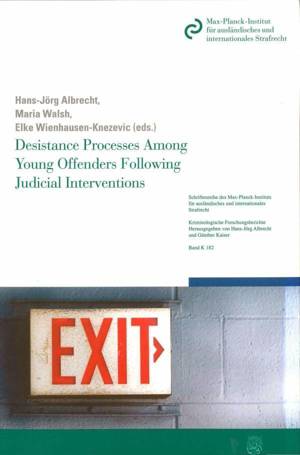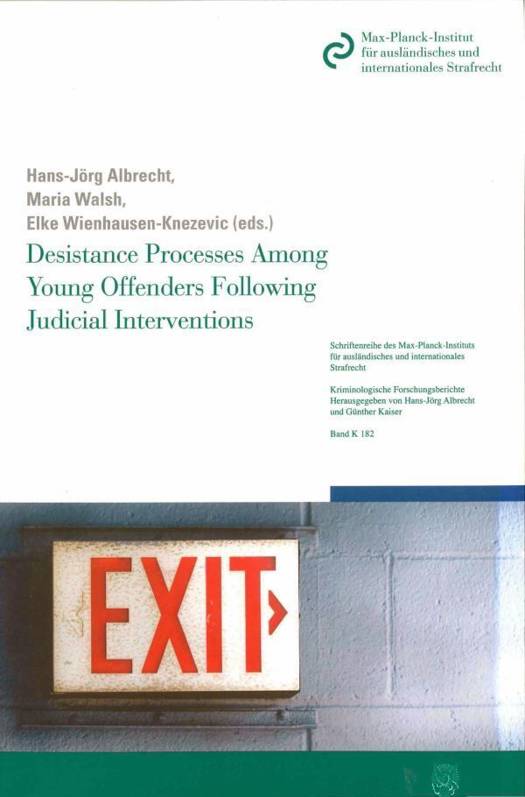
- Afhalen na 1 uur in een winkel met voorraad
- Gratis thuislevering in België vanaf € 30
- Ruim aanbod met 7 miljoen producten
- Afhalen na 1 uur in een winkel met voorraad
- Gratis thuislevering in België vanaf € 30
- Ruim aanbod met 7 miljoen producten
Zoeken
Desistance Processes Among Young Offenders Following Judicial Interventions
€ 64,45
+ 128 punten
Omschrijving
The idea for this book originated from a workshop on "Desistance Processes among Young Offenders following Judicial Interventions" held at the Max Planck Institute for Foreign and International Criminal Law (MPICC) in Freiburg. Over the past three decades, there has been growing scientific interest in the discussion of why and how offenders desist from crime. Despite various approaches regarding the understanding of what is important for cessation of criminal careers, there is little consensus among professionals working in this area. However, there is basic consensus on the assumption that external and internal factors are equally important for rehabilitation. Hence, interdisciplinary empirical approaches to desistance stress the importance of an integrated analytical framework. This book provides insight into how young offenders experience judicial interventions and elucidates pathways towards desistance. The papers, written by twelve European experts in the field, represent different theoretical and methodological approaches. Empirical research findings as well as fieldwork experiences of practitioners working with young delinquents are presented. They reflect the diversity of the current European research on the phenomenon of desistance from crime.
Specificaties
Betrokkenen
- Uitgeverij:
Inhoud
- Aantal bladzijden:
- 173
- Taal:
- Engels
- Reeks:
- Reeksnummer:
- nr. 182
Eigenschappen
- Productcode (EAN):
- 9783428157631
- Verschijningsdatum:
- 22/05/2019
- Uitvoering:
- Paperback
- Formaat:
- Trade paperback (VS)
- Afmetingen:
- 147 mm x 224 mm
- Gewicht:
- 2258 g

Alleen bij Standaard Boekhandel
+ 128 punten op je klantenkaart van Standaard Boekhandel
Beoordelingen
We publiceren alleen reviews die voldoen aan de voorwaarden voor reviews. Bekijk onze voorwaarden voor reviews.






